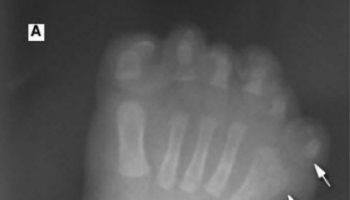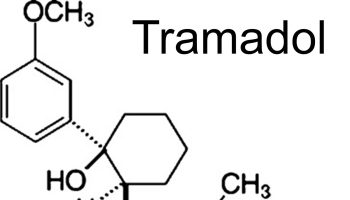Contents
What is sulbutiamine
Sulbutiamine is a lipid-soluble isobutyryl disulfide derivative of thiamine (vitamin B1) that crosses the blood-brain barrier and is widely available without prescription in most countries or over the internet for the treatment of fatigue (asthenia) and other related pathological conditions 1. Sulbutiamine is a synthetic molecule, which consists of two thiamine (vitamin B1) molecules bound together by a sulfur group. As a dimer of two thiamine molecules, sulbutiamine is a lipophilic compound that crosses the blood–brain barrier more readily than thiamine 2. Sulbutiamine is chemically known as [4-[(4-amino-2-methyl-pyrimidin-5-yl) methyl-formyl-amino]-3-[2-[(4-amino-2-methyl-pyrimidin-5-yl) methyl-formyl-amino]-5-(2-methylpropanoyloxy)pent-2-en-3-yl]disulfanyl-pent-3-enyl]-2-methylpropanoate.
Sulbutiamine is a thiamine derivative which has two different properties in comparison with vitamin B1 (thiamine) as a result of structural modification of free thiamine (vitamin B1), namely opening of the thiazole ring, esterification of the alcohol groups and dimerization, with formation of a disulfide bridge 3. Sulbutiamine crosses the blood brain barrier more easily than vitamin B1 (thiamin) because of its lipophilic properties 4. Sulbutiamine leads to an increased formation of thiamine triphosphate 5 that acts as a regulator of the synaptic transmission of many neurotransmission systems.
Behavioral studies in the laboratory rat have shown that sulbutiamine improves learning and memory 6 and vigilance 7. Moreover, it produces detectable effects on the EEG, suggesting that this molecule produces stimulation or enhancement of the noradrenergic transmission 8 in addition to its cholinergic action 3.
Does sulbutiamine work?
Various studies indicate that thiamine deficiency alone can have harmful effects on neuronal viability in the hippocampus 9 and to further support the importance of thiamine in cell viability, there are reports suggesting the role of thiamine in enhancing the survival of cultured neurons 10 and attenuating cell death caused by ischemia in cardiomyocytes 11. Because thiamine deficiency causes problems with memory and other cognitive functions, thiamine and analogs like sulbutiamine have been studied in clinical trials in the 1980s and 1990s for age-associated cognitive decline 12.
Sulbutiamine has been explored in clinical trials as a potential treatment for chronic fatigue syndrome 13.
The pharmacology of sulbutiamine has been studied in various mice and rats; as of 2014 it appeared that sulbutiamine might be more effective in raising thiamine phosphate levels in the brain than benfotiamine and fursultiamine, but this was not certain 14.
Sulbutiamine for diabetic polyneuropathy
In a randomized controlled study involving thirty type 2 diabetes mellitus patients [15 patients on sulbutiamine 400 mg daily or 15 patients without treatment (control group)] with diabetic polyneuropathy in Malaysia from 1996 to 1998 15, found no significant improvement in symptom and sign scores were noted between the sulbutiamine and no treatment groups after 6 weeks. Despite the lack of symptoms improvement in patients with diabetic neuropathy , the researchers found improvements in the electrophysiological parameters in the sulbutiamine 400 mg daily treatment group when compared to the controls with significant improvement in the median nerve conduction velocity, median compound muscle action potential, peroneal nerve conduction velocity and peroneal compound muscle action potential 15. The glycemic control in both groups was not significantly different at base line and was stable throughout the study.
Sulbutiamine for fatigue in patients with multiple sclerosis
In a small study involving twenty-six patients with multiple sclerosis (MS) (18 females and 8 males, average age 37.2 years), sulbutiamine 400 mg orally once daily for two months may be effective in treating fatigue in MS (multiple sclerosis); particularly in patients who were on some disease modifying treatment, but not on those who were not 16. Sulbutiamine intake resulted in a significant reduction on the total score of Fatigue Impact Scale (FIS) and on all three subscales assessing physical, cognitive, and psychosocial functioning 16. Sulbutiamine is well-tolerated by all. The study authors added that further studies are required to determine the effectiveness of sulbutiamine on fatigue in multiple sclerosis (MS).
Summary
Despite sulbutiamine being a derivative of thiamine (vitamin B1) that can cross the blood-brain barrier, existing clinical data on the benefits of sulbutiamine are lacking. The only available human research data that showed the potential benefit of sulbutiamine is the use of sulbutiamine 400 mg orally once daily for treating fatigue in MS (multiple sclerosis) 16.
Sulbutiamine side effects
Adverse effects in clinical trials have included diarrhea, bladder infections, bronchitis, arthritic pain, back pain, asthma, abdominal pain, insomnia, constipation, gastroenteritis, diffuse pain, sinusitis, headache, kidney pain, vertigo, and sore throat 13.
- Injection of sulbutiamine induces an increase in thiamine triphosphate in rat tissues. Bettendorff L, Weekers L, Wins P, Schoffeniels E. Biochem Pharmacol. 1990 Dec 1; 40(11):2557-60.[↩]
- Farid NF, Abdelwahab NS. Stability-Indicating HPTLC Method for Studying Stress Degradation Behavior of Sulbutiamine HCl. J Chromatogr Sci. 2016;54(4):609-17. https://www.ncbi.nlm.nih.gov/pmc/articles/PMC4885403/[↩]
- Kiew KK, Wan Mohamad WB, Ridzuan A, Mafauzy M. Effects of sulbutiamine on diabetic polyneuropathy: an open randomised controlled study in type 2 diabetics. Malays J Med Sci. 2002;9(1):21-7. https://www.ncbi.nlm.nih.gov/pmc/articles/PMC3436103/[↩][↩]
- Injection of sulbutiamine induces an increase in thiamine triphosphate in rat tissues. Bettendorff L, Weekers L, Wins P, Schoffeniels E. Biochem Pharmacol. 1990 Dec 1; 40(11):2557-60. https://www.ncbi.nlm.nih.gov/pubmed/2268373/[↩]
- Chronic administration of sulbutiamine improves long term memory formation in mice: possible cholinergic mediation. Micheau J, Durkin TP, Destrade C, Rolland Y, Jaffard R. Pharmacol Biochem Behav. 1985 Aug; 23(2):195-8.[↩]
- Michea J, Durkin T, Destrade C, Rolland Y, Jaffard J. chronic administration of sulbutiamine improves long-term memory formation in mice, possible cholinergic mediation. Pharmacol Biochem Behad. 1985;23–2:195–198.[↩]
- Balzamo E, Vuillon – Cacciutollo G. Facilitation de l’etat de veille d’un traitement semi-chronique par la sulbutiamine (Arcalion) chez le Macaca Mulatta EEG Neuro. 1982;12:373–378.[↩]
- Sebban C. Effets electroencephalographiques d’Arcalion 200. J. Med. Prat. 1989;3(suppl. Oct):11–18.[↩]
- Bâ A., N’Douba V., D’Almeida M. A., Seri B. V., Acta Neurobiol. Exp.(Warsz.) 2005, 65, 387—398[↩]
- Geng M. Y., Saito H., Katsuki H., Jpn. J. Pharmacol. 1995, 68, 349—352[↩]
- Shin B. H., Choi S. H., Cho E. Y., Shin M. J., Hwang K. C., Cho H.K., Chung J. H., Jang Y., Mol. Cells 2004, 18, 133—140[↩]
- Cognition enhancers in age-related cognitive decline. Drugs Aging. 1996 Apr;8(4):245-74. https://www.ncbi.nlm.nih.gov/pubmed/8920174[↩]
- Alraek T, Lee MS, Choi TY, Cao H, Liu J. Complementary and alternative medicine for patients with chronic fatigue syndrome: a systematic review. BMC Complement Altern Med. 2011;11:87. Published 2011 Oct 7. doi:10.1186/1472-6882-11-87 https://www.ncbi.nlm.nih.gov/pmc/articles/PMC3201900/[↩][↩]
- Bettendorff L (2014). “Chapter 7 – Thiamine”. In Zempleni J, Suttie JW, Gregory JF, Stover PJ. Handbook of vitamins (Fifth ed.). Hoboken: CRC Press. pp. 267–324. ISBN 9781466515574[↩]
- Kiew KK, Wan Mohamad WB, Ridzuan A, Mafauzy M. Effects of sulbutiamine on diabetic polyneuropathy: an open randomised controlled study in type 2 diabetics. Malays J Med Sci. 2002;9(1):21-7. https://www.ncbi.nlm.nih.gov/pmc/articles/PMC3436103[↩][↩]
- Sulbutiamine shows promising results in reducing fatigue in patients with multiple sclerosis. Mult Scler Relat Disord. 2017 Aug;16:40-43. doi: 10.1016/j.msard.2017.05.010. Epub 2017 Jun 9. https://doi.org/10.1016/j.msard.2017.05.010[↩][↩][↩]





